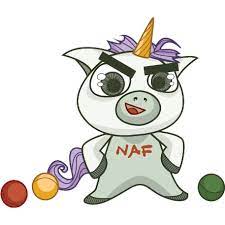Hi everyone. I wrote on this topic on LinkedIn last week, and it hit a nerve, so I wanted to expand. Every once in a while, folks in our sector make lists highlighting experts and resources they think are great. “25 Fundraising Experts You Should Follow.” “20 Books on Leadership That Should Be on Your Reading List.” “Top 10 Unconventionally Sexiest Vegan Nonprofit Bloggers from the Pacific Northwest.” Etc.
I appreciate the effort that it takes to make these lists, as they can be helpful. However, if you’ve made such a list and published it, just know that the first thing many people will do is scan to see the demographics information. And even to this day, many of these lists are glaringly white, and often full of white men.
And the responses from the mostly white colleagues on these lists are along the lines of “So honored to be among such great company!” Sometimes, a gracious colleague will name several leaders of color they recommend to also get a bit of the limelight. But more likely, there’s further recommendations of more white professionals, without much reflection or self-awareness. Yikes.
It’s not just lists though, as colleagues on LinkedIn point out. Conference speakers, podcasts, panels, etc., all still have problems with representation, despite our years of DEI training. And it’s not just the lack of diversity and inclusion, but also how we react to it that may reinforce it. All of it just shows just how pervasive white, patriarchal, ableist, neurotypical, and heteronormative systems are, to the point that many of us don’t even know that we’re perpetuating them.
So here are a few guidelines and reminders. For all of us, but especially for white colleagues:
Constantly check for who is missing: When you make a list, invite guests for your podcast, put together a panel, etc., double check to see whose voices have been absent, and take corrective actions as needed. All of us need to be more intentional about this. When I first wrote this light-hearted blog post “24 quotes by famous people if they had worked in nonprofit,” I read through it and realized that 18 out of 24 of the quotes were from famous men, so I changed it (It was also originally 25, but I removed a transphobic author). Race and gender are the most obvious, but also think about sexual orientation, disability, transgender identity, age, neurodiversity, geographic representation, etc.
Be aware of who agrees with you: Sometimes I peruse through social media posts and see some of the most asinine viewpoints expressed ever, or some of the most non-inclusive lists. And these posts may have dozens or hundreds of likes. That may seem like people agree, but if you click on who reacted to the post, it may tell a different story. If the majority of the people who “liked” what you created are white, men, etc., and there’s no response or mostly negative responses from people of color, women, etc., then maybe reassess what you said. Yes, I know there are more white people in our sector. Even so, it should be a warning if most people who agree with you are white.
If you’re “included,” give feedback when it’s appropriate: Because of how pervasive this is, people often don’t realize they’re doing it. If you are aware of it, and you are also privileged enough to be included, use your voice to provide some helpful feedback. For instance, privately contact the author of a list and let them know that while you’re honored to be thought of, their list is not very diverse and you recommend they be more inclusive. Or if you’re invited to be a speaker at an event, and you notice most of the other speakers listed are men, let the conference organizers know.
Be thoughtful about when you should refuse engagement: If something is not inclusive online, refrain from “liking” and sharing it. Engaging with these posts leads to algorithms further disseminating them, which means you are helping normalize lack of diversity and reinforcing the content creator’s lack of thoughtfulness. Meanwhile, those who are included in lists, invitations to speak, etc. should be intentional about when you accept these opportunities. Sometimes, the most significant thing you can do is turn them down, and maybe recommend other people who aren’t often featured. It would be the equitable thing to do, but also, do you really want to be the 19th dude on a list of top 25 experts on fundraising, or the 4th white person on a panel talking about…anything?
If someone calls you out, take it graciously: It can make you feel like crap to get feedback that a list of experts you like, panel, podcast guest roster, book recommendations, or whatever you put together is composed almost entirely of white men or white women. But be appreciative, especially if it comes from a person of color or of other marginalized backgrounds. Most of us don’t want to constantly deal with this stuff. But it’s in our faces all the time. So if someone takes time and energy to let you know something is amiss, when they could be watching Sex Education’s final Season on Netflix and not deal with the stress of handling your potential fragility and defensiveness, be grateful. Thank them and make corrections.
Be intentional about who you follow and who follows you: Regularly check your social media followers, as well as the people you follow. If most of them are white, male, non-disabled, cisgender, etc., then chances are, you are in a certain bubble, and you’re more likely to amplify people and opinions that uphold dominant systems. Make more effort to follow and connect with people who are not in dominant groups: people of color, women, women of color, transgender people, LGBQIA people, neurodiverse people, lower-income people, etc.
“Over”-representation of people from marginalized communities is good: The late Supreme Court Justice Ruth Bader Ginsburg was asked when would there be enough women on the SCOTUS, and she said, “When there are nine.” Because people from dominant identities are represented everywhere and all the time, it is completely OK when they are not represented. For example, a panel of mostly or all white men is not good. However, a panel of mostly or all women of color is amazing!









